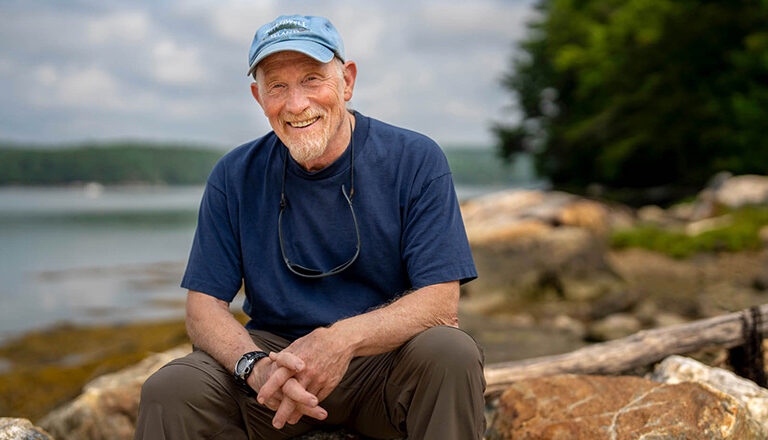The change of seasons—spring being what’s on my mind—can call out old habits. Mine have to do with boats and the preparations they require at this time of year. The habits of others will be different, of course, depending on circumstances, priorities, and whose habits we’re talking about.
While my boat habit goes back a long way it’s important only to me, so except to say that I just got myself all tired and muddy setting out a mooring there’s no need to report further. The boat’s sitting out there right now.
A few other habits—not mine, I need to say—are on display for everyone to see, comment on, even complain about.
I’m referring to habits on display this spring, for better or for worse, at three different public entities: the state Department of Transportation, the Portland Jetport, and the Maine Turnpike Authority.
The result of this habitual thinking? Angry neighbors, likely lawsuits, delays…
Let’s take these fine organizations and their habits one at a time. The DOT owns Sears Island, and after a long, official-looking process, it designated the island as the site for Maine’s new offshore wind port.
Nothing wrong with a wind port as we begin to de-carbonize our energy system, but the rationale for Sears Island looked too habitual to a lot of us: build it there because we already own it. Besides, the state has been looking for ways to justify its acquisition of Sears Island for the decades since proposals for cargo ports, refineries, and other developments have failed to fly or float. Some habits are getting old, and a change might be in order.
Next, let’s say a few less-than-complimentary things about the Portland Jetport, which is running out of parking space.
Proposed solution, really habitual if you ask me: fill in some swampy places, cut down some trees, and intrude on a neighborhood to expand the existing parking lot.
The result of this habitual thinking, which airports everywhere else abandoned years ago? Angry neighbors, likely lawsuits, delays—when getting beyond old habits and putting people on a bus to offsite parking lots at, say, the already-paved and declining Maine Mall, would be cheaper and less destructive to the area next to the airport. (I know there is already offsite parking at a place called the Pink Lot, but why not head for the mall? Lots of other folks aren’t these days.)
Candidate No. 3 for the skewer treatment is the great granddaddy of all habitual thinkers, the Maine Turnpike Authority.
Decades ago the Authority, which is less accountable to the public than it should be, decided to deal with the annual traffic jam at the tollgates at its southern end by a huge widening project. The resulting uproar actually got the legislature into the picture with the Sensible Transportation Act, diverting some of the Authority’s wealth (remember all those quarters we pitched into its toll baskets?) to uses other than the big road; that is, local road needs elsewhere.
Mass transit: The Amtrak Downeaster train comes to mind. Sure, the Turnpike got widened in the end, but with the help of non-habitual thinking we got a few other things done as well.
Now, of course, the Turnpike Authority has fallen back onto old habits by proposing to deal with traffic jams west of Portland with a toll-supported highway extension aimed at downtown. Forced to look at alternatives, it rejected things like buses and light rail in favor of—you guessed it—more road. It asked towns along the way for support and got it from local politicians responding to complaints about traffic jams but unwilling to entertain habit-free alternatives to more cars and roads.
Fortunately the project has run up against a big farm it wants people to drive through on their way to town. The battle is joined.
Old habits die hard, I know. A state-owned island connected to the mainland by a state-built causeway intended for a cargo port? Use it for a wind port! Airport parking got you down? Expand the parking lot as we’ve done in the past! Traffic jams between the existing Turnpike and downtown? Extend the highway, of course!
These examples of habitual thinking make my boat habits seem completely harmless—as they are.
David D. Platt is a former editor of The Working Waterfront and Island Journal. He lives in Scarborough.





